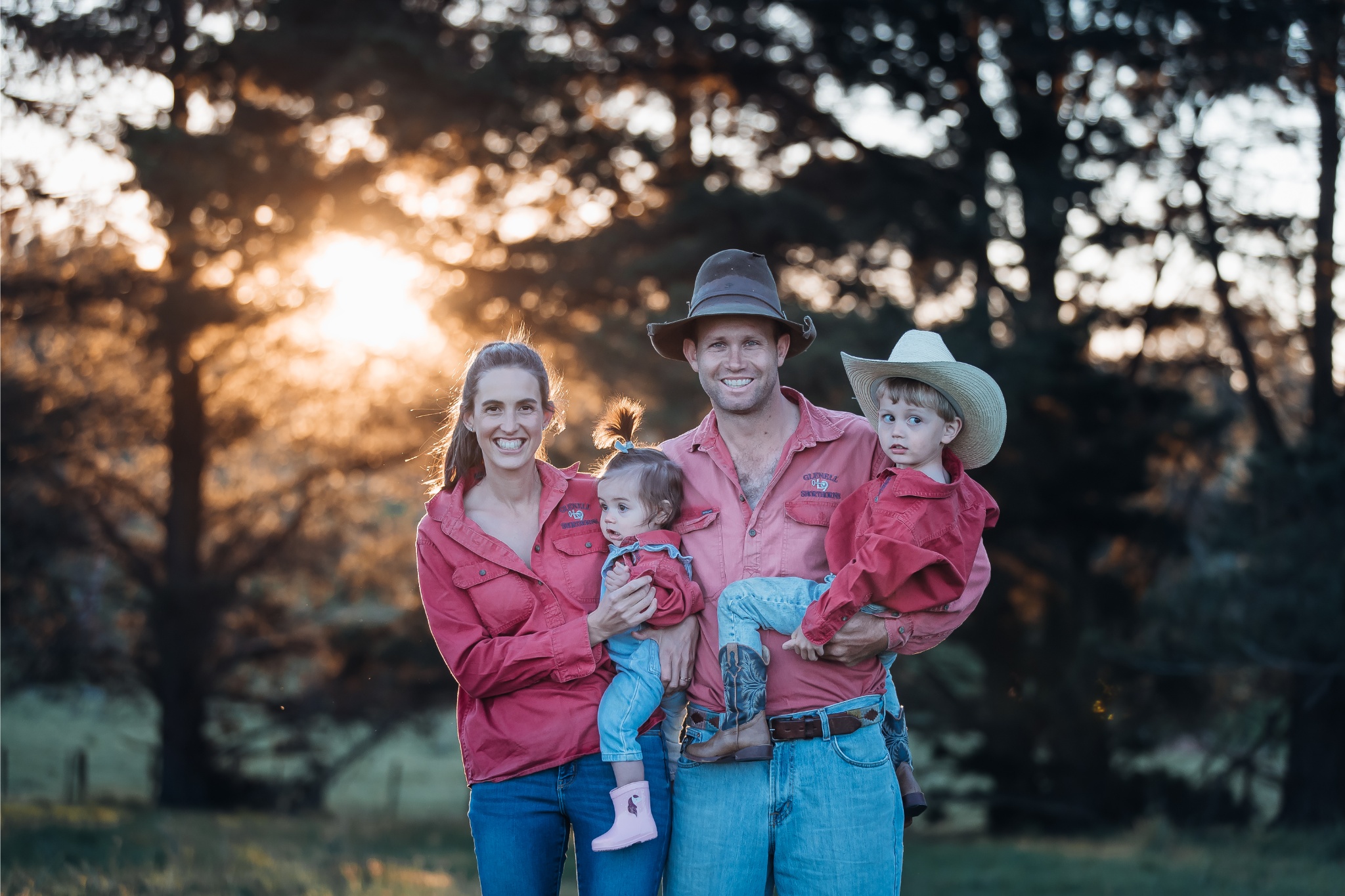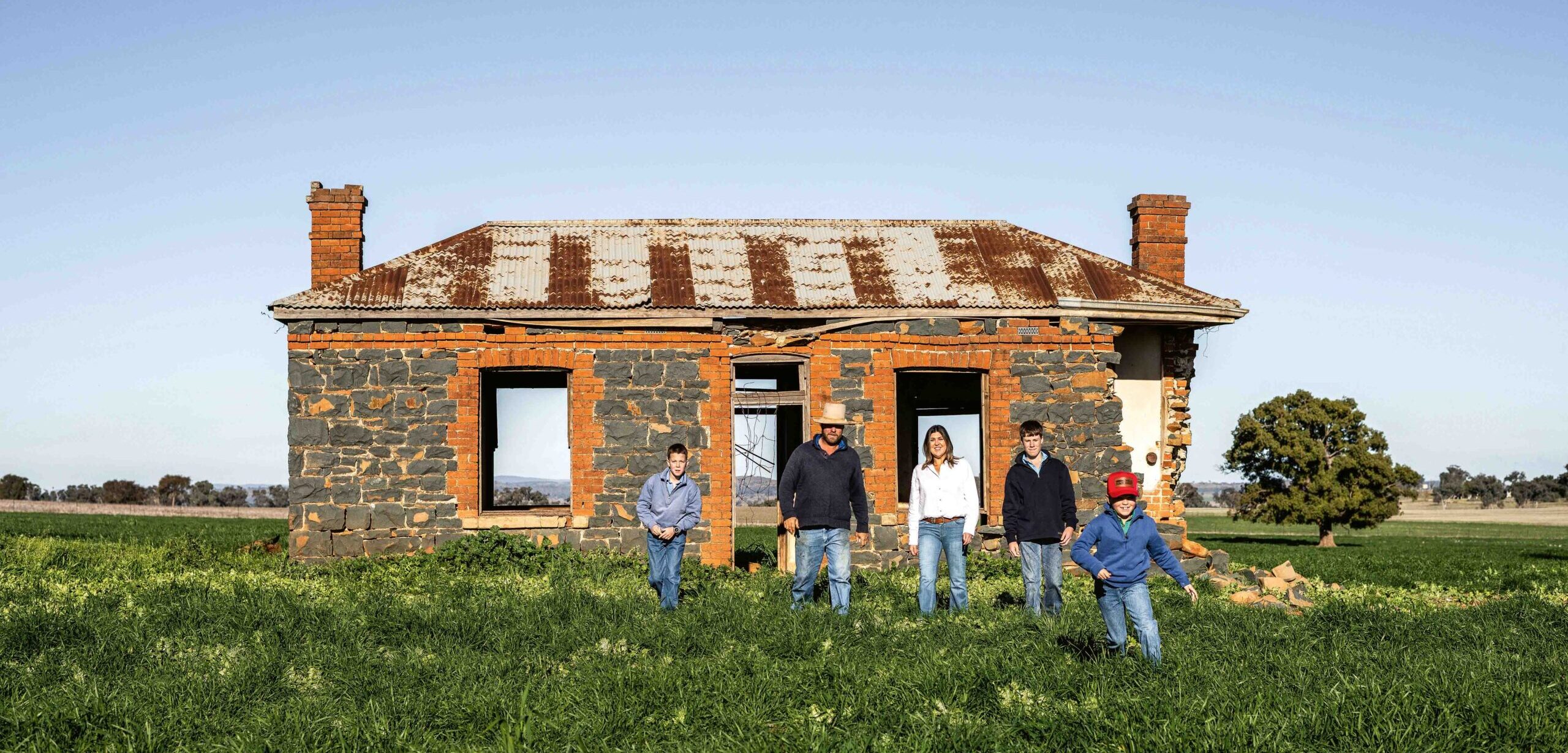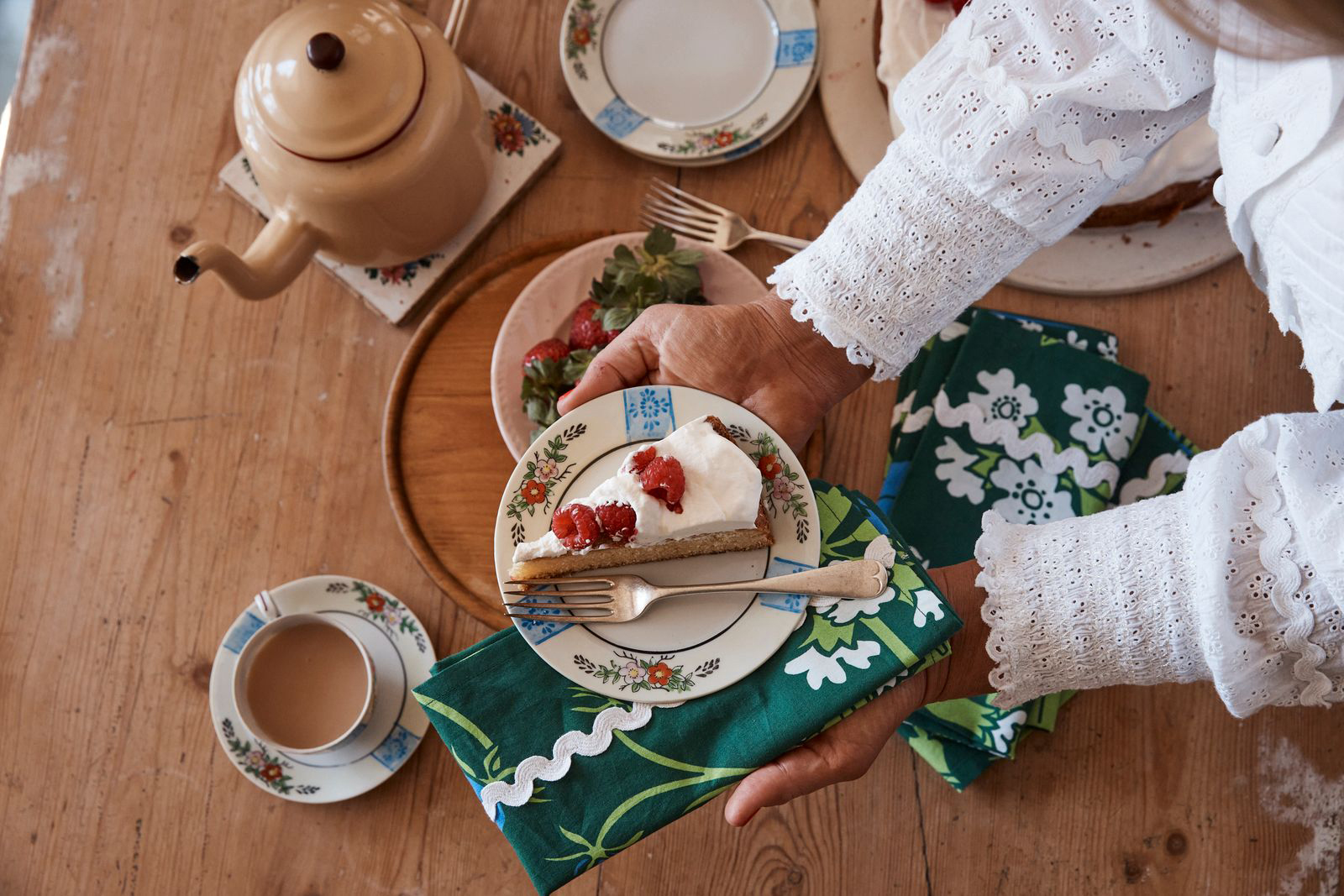Sign up to our mailing list for the best stories delivered to your inbox.
Rural women who have a miscarriage need better support and more health resources, writes Emily Herbert.
WORDS EMILY HERBERT
Lauren Williams was 12 weeks pregnant when she and husband Ryan were finishing milking on their share farm near Inverloch on Victoria’s Gippsland coast. It was Ryan’s 27th birthday; later that day, the pair were going out for lunch to celebrate with their 18-month-old son Zach. Just days earlier, Lauren’s scan had been positive and the then 24-year-old had let her friends and family know they were expecting. The congratulatory messages and excited calls started to flood in. Then Lauren began to cramp.
“I finished feeding the calves, Ryan finished milking and I went inside and rang the doctor,” the kindergarten teacher remembers with sadness. Eight hours, several doctors and an ultrasound later, it was confirmed; Lauren had suffered a miscarriage. She was scheduled for a dilatation and curettage (D&C), a procedure to remove the tissue from inside the uterus, usually performed under a general anaesthetic. But there was no-one available at the hospital for two days and the pair were sent home to wait.
“I’d get phone calls saying, ‘Oh, well, it wasn’t meant to be,’ ‘You fell pregnant once so you can fall pregnant again,’ or ‘You’ve got one child, you’re already very lucky,’” Lauren says. “Those were the comments that hurt the most, because at the time I was still grieving what was happening.”
The Williams waited for three months before trying again and fell pregnant straight away — before Lauren suffering a partial miscarriage seven weeks later. “I had to go under and have another D&C. My GP asked if I’d like to be referred to a counsellor and I said yes,” Lauren explains. “But I never actually saw a therapist, purely because of the area we lived in. There were just very limited resources, the waiting lists were long and, at the time, I was more comfortable talking to someone in person than online.”
When Lauren fell pregnant with her daughter, Ellie, she didn’t allow herself to be excited until she’d given birth. She didn’t even want to tell anyone, but Ryan insisted they did so they could be supported if anything happened. “I was anxious the whole pregnancy that something was going to go wrong. I knew how quickly you can lose something,” Lauren explains.
“That’s when your body produces all the normal pregnancy hormones and thinks it’s pregnant, but the baby doesn’t form,” Claire says. “I had no inkling; I was nauseous, bloated, had all the symptoms. But at my first scan, I was lying there in too long a silence. I joked to the clinician, ‘Is it in there?’ He looked at me and said, ‘I think you’re in the early stages of a miscarriage.’”
Claire went on to have four more ‘chemical’ miscarriages which is a very early pregnancy loss, often less than five weeks, where a test is positive but is quickly followed by a period.
“I think I got addicted to doing pregnancy tests. It’s all you think about, every month,” Claire says. “Six months after my first miscarriage, when I would have been six months pregnant and it was Christmas time, I’d had all these other miscarriages and I went back to my GP and said, ‘I’m just not coping very well mentally. I’m an anxious mess, I’m not trusting my body.’”
After conceiving her second son, Jimmy, Claire suffered terrible anxiety. “I knew I wasn’t right mentally throughout the pregnancy. I’d never been in this state before,” the 33-year-old says. “It’s a different type of grief, when it’s your body failing you. I wanted to complete a family not just for me, but for my son and husband.”
One of the ways she learned to cope was by lighting a candle, focusing on her breathing and positive thoughts. Soon after Jimmy was born in 2021, Claire started making candles infused with crystals, and during last October’s International Pregnancy and Infant Loss Awareness Month, she crafted and sold 100 candles, the profits going towards a health hub she’s formed alongside a midwife, chiropractor and counsellor. Each of the professionals have experienced their own pregnancy loss and bring empathy and understanding along with their trained skills.
“I started ‘Lighting the Way’ to help others with their journey. There’s $250 available for any rural woman to access the services, either in person or via telehealth, while funds last,” she says. “They’re the services I needed and couldn’t really find.”
Dr Jared Watts is a rural gynaecologist and the Head of Obstetrics and Gynaecology for WA Country Health Service. He spends his time travelling between Perth and the Kimberley, where he holds rural clinics and does the rounds in Broome, Derby and Kununurra.
“One in five confirmed pregnancies end with miscarriage, and we often don’t know what causes it. Around 50 per cent of the time, I describe it to my patients as a mistake or error when the genetic information from the egg and the sperm comes toget-her,” Dr Watts says. “Other causes are many. They include maternal age, and therefore egg age (remembering eggs are four months older than the mother is), uterine shape abnormalities, smoking, heavy alcohol use and other illicit drugs, some infections, hormonal issues and health challenges such as diabetes, lupus, kidney disease and thyroid disease.”
Pregnancy loss is often portrayed in the movies as no heartbeat or lots of blood, but there are several types of miscarriages and medical approaches. “With ‘traditional’ miscarriages, we usually watch and wait: 60 per cent of the time, the pregnancy will pass on its own,” Dr Watts explains. “Sometimes we can offer medication to help the tissue pass more quickly. Other times surgery, such as a D&C, is recommended.”
For those with recurring miscarriages, Dr Watts suggests starting with a GP visit — not always the easiest option if living remotely or facing long appointment wait lists. “A GP may start with a detailed ultrasound or blood tests looking at hormones, diabetes or thyroid issues. They may refer to a specialist obstetrician, gynaecologist or fertility doctor who can recommend further tests and treatment for both parties — male and female,” he says. “Treatment can be targeted, from hormone tablets such as progesterone or aspirin, through to surgery for uterus shape, or IVF.”
In metropolitan areas, there are specialist dedicated pregnancy-loss clinics called Early Pregnancy Assessment Service (EPAS). It’s hard not to feel the lack of similar resources in the bush. Rural doctors and medical personnel are often stretched thin with lack of staff and resources themselves, and aren’t necessarily specialist-trained to deal with the nuances of miscarriage.
“I think we can help mitigate this through telehealth with experts in the area. Smaller hospitals — like Broome — are realising how challenging and confronting this can be for women and their families, and are setting up smaller EPAS clinics,” Dr Watts says. “Telehealth education, counselling, and support groups are also very helpful for rural women.”
Subscribe to Graziher and never miss an issue of your favourite magazine! Already a subscriber? You can gift a subscription to someone special in your life.
To hear more extraordinary stories about women living in rural and regional Australia, listen to our podcast Life on the Land on Apple Podcasts, Spotify and all major podcast platforms.


They share their stories in the hope that others will find comfort in a time of unfathomable grief.
“We absolutely love our life out here and couldn’t think of a better place to raise a family of our own,” Mallory says. “We began trying for a baby in late 2020 and shortly after that I found out I was pregnant. We were absolutely ecstatic! Then, only a few days later, I realised I’d lost the baby. We were both quite upset, but after doing some research, I was somewhat comforted in knowing it was more common than I thought and lots of mothers go on to have successful pregnancies afterwards.”
In February 2021, Mallory fell pregnant again. Understandably nervous, she felt relieved when she made it to seven weeks. “I started buying baby clothes and all the other things you do when you’re newly pregnant and excited. At about eight weeks, I experienced pain in my lower abdomen. I fainted and was flown to Broken Hill Base Hospital with a suspected ectopic pregnancy [when the fertilised egg grows outside the uterus],” she says.
“We did some scans and found the baby was actually in the right spot; however, it wasn’t growing as expected and there was no heartbeat. They sent us home and told us to go back to our obstet-rician in Adelaide in two weeks for another scan, as we might’ve got the dates wrong and it was possible we were just a little earlier than they thought. On our way to Adelaide I experienced more pain, and that night I ended up miscarrying, at 10 weeks. It was such a painful and heartbreaking experience.”
In January 2022, in the middle of putting the rams out for the season, Mallory found another two lines on a pregnancy test. Unfortunately, a couple of days later, the agribusiness graduate had her third miscarriage.
“It wasn’t until my friend suggested going through fertility testing that we really started to find answers. I had no idea that was even accessible to us: I think we assumed that because we could fall pregnant, there was no need for fertility treatments. We started speaking to a specialist in August 2022 and are now undergoing testing and researching possible avenues such as IVF and embryo testing.
“I felt an underlying depression for a long time after our second miscarriage and still have days where I struggle to think about anything else. I get overwhelmed and consumed by guilt and sadness. A few years ago, I could never imagine talking about something so personal in such a public space, but now I feel it’s so important to shine light on this topic.
“There are already enough feelings of guilt and anxiety for those going through miscarriage, without the added pressure of having to keep things secret or taboo and not receiving any support.”
Bess O’Connor started trying to conceive with her cotton-farmer husband, Andrew, when she was 23. The now 36-year-old went on to have five miscarriages, three before her son Eddison was born 10 years ago, and another two before she had her daughter Adelaide, seven. Living on a farm near Mungindi, New South Wales, it was a battle to access care — and required a lot of self-advocacy and self-research.
“It’s been 13 years since I first experienced a miscarriage and very little has been done to correct what are policy and protocol misgivings in the healthcare system that amplify trauma unnecessarily,” Bess says. “Things like, treating miscarrying women on a different ward (not the maternity ward), choosing language that respects that the babies are wanted and loved and not belittling the experience of the bereaved with what I call ‘sunshine searching’ by saying things like, ‘You can try again’ or ‘These things happen for a reason.’ Simply saying, ‘I’m sorry, this sucks, I can’t imagine,’ is enough.”
Her advice to those supporting loved ones through a pregnancy loss is pragmatic. “It’s sad. It will always be sad. You can’t avoid that, you genuinely have to learn to cope. We want to fix everything and these things are not fixable,” Bess continues.
“It happens to so very many people. So please, don’t ask, ‘When are you going to have a baby?’ unless you’re prepared to hear about the hole that exists in their hearts. Don’t ever say, ‘Just stop trying and it will happen.’ Be gentle. You can make the world a better place by just being gentle.”
Lauren and Ryan Williams bought their own dairy farm in Victoria’s Fish Creek in 2021, when Lauren was 20 weeks pregnant with their third child, Lucy, who is now one year old. With her days full to the brim, the farmer doesn’t get a lot of time in the day for reflection, but in the quiet minutes — often late at night, or very early in the day — her thoughts turn to the pregnancies that didn’t make it.
“Once you find out you’re pregnant, straight away you think, are we having a boy or a girl? What are their personality traits going to be like? What will the season be when they’re born? You start picturing a lifetime with them. Then, that gets taken from you and you’re expected to kind of forget about it,” she says.
“I think because people think it’s not a child that’s physically in your hands, you should be able to get over it. But you’re grieving and you’re mourning the loss of the life that you wanted to have with this baby. That takes time.”
For more information, visit rednosegriefandloss.org.au and pinkelephants.org.au

Sending her boys to boarding school was a tough decision, but Dannielle Lees wants them to experience the best of life in Sydney.

It seems the sourdough craze of the early pandemic still has its followers.